
Hubert Horatio "Skip" Humphrey III is an American retired politician who served as attorney general of the state of Minnesota (1983–1999) and State Senator (1973–1983). Humphrey led the Office of Older Americans as the assistant director at the Consumer Financial Protection Bureau (CFPB).

Mark Brandt Dayton is an American politician who served as the 40th governor of Minnesota from 2011 to 2019. He served as a United States Senator representing Minnesota from 2001 to 2007 and as Minnesota State Auditor from 1991 to 1995. He is a member of the Minnesota Democratic–Farmer–Labor Party (DFL), which affiliates with the national Democratic Party.
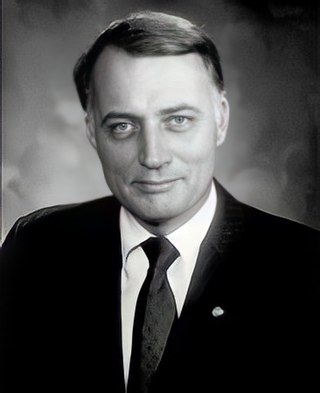
David Ferdinand Durenberger was an American politician and attorney from Minnesota who served as a Republican member of the United States Senate from 1978 to 1995. He left the Republican Party in 2005 and became a critic of it, endorsing Democratic presidential nominees Hillary Clinton and Joe Biden in 2016 and 2020, respectively.

Elmer Austin Benson was an American lawyer and politician from Minnesota. In 1935, Benson was appointed to the U.S. Senate following the death of Thomas Schall. He served as the 24th governor of Minnesota, defeating Republican Martin Nelson in a landslide in Minnesota's 1936 gubernatorial election. He lost the governorship two years later to Republican Harold Stassen in the 1938 gubernatorial election.

The 1998 Minnesota gubernatorial election took place on November 3, 1998. Reform Party candidate Jesse Ventura, the former mayor of Brooklyn Park and a former professional wrestler, won office, defeating Republican St. Paul mayor Norm Coleman and DFL state attorney general Skip Humphrey. He succeeded Republican incumbent Arne Carlson, who was term limited. Ventura's victory as a third-party candidate was considered a historic major upset.

The 95th United States Congress was a meeting of the legislative branch of the United States federal government, composed of the United States Senate and the United States House of Representatives. It met in Washington, D.C., from January 3, 1977, to January 3, 1979, during the final weeks of Gerald Ford's presidency and the first two years of Jimmy Carter's presidency.

The 1978 United States Senate elections were held on November 7, in the middle of Democratic President Jimmy Carter's term. The 33 seats of Class 2 were contested in regular elections. Special elections were also held to fill vacancies.

Robert Earl Short was an American businessman, sport teams owner, and politician. Short owned the Minneapolis / Los Angeles Lakers of the National Basketball Association and the Washington Senators / Texas Rangers of Major League Baseball. He served as the treasurer of the Democratic National Committee from 1968 to 1969.
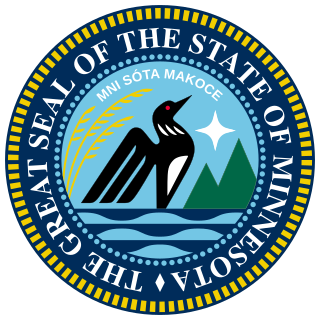
Minnesota is known for a politically active citizenry, with populism being a longstanding force among the state's political parties. Minnesota has consistently high voter turnout, ranking highest or near-highest in recent elections. This is due in part to its same-day voter registration laws; previously unregistered voters can register on election day with evidence of residency.
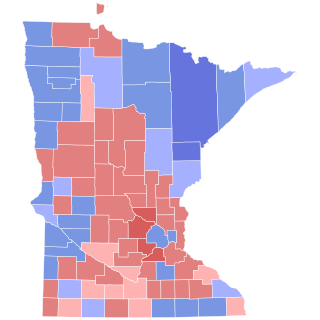
The 2002 United States Senate election in Minnesota took place on November 5, 2002. Incumbent Senator Paul Wellstone was running for a third term but died in a plane crash eleven days before the election. The Democratic–Farmer–Labor Party (DFL) quickly chose former Vice President and 1984 presidential nominee Walter Mondale to replace Wellstone on the ballot. Mondale had previously held the seat from 1964 to 1976, resigning to assume the vice presidency. He narrowly lost to Republican Norm Coleman, the former mayor of Saint Paul. The day before the election, Governor Jesse Ventura appointed the 1996 Independence Party candidate, Dean Barkley, to serve the remainder of Wellstone's term.

The 1982 United States Senate election in Minnesota was held on November 2, 1982. Incumbent Republican U.S. Senator David Durenberger was reelected to a second term over DFL nominee Mark Dayton.

The 1988 United States Senate election in Minnesota was held on November 8, 1988. Incumbent Republican U.S. Senator David Durenberger won re-election to his third term. He was challenged by democratic Hubert "Skip" Humphrey III, the son of former vice president Hubert Humphrey. The seat had previously been held by both of Skip Humphrey's parents. This is the last time that Minnesota voted for a Senate candidate and a presidential candidate of different political parties as Durenberger, a liberal Republican, remained popular among Minnesotans during his tenure in the Senate.

The 2000 congressional elections in Minnesota were held on November 7, 2000 to determine who would represent the state of Minnesota in the United States House of Representatives.
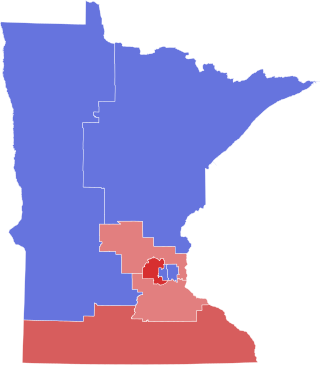
The 2002 congressional elections in Minnesota, were held on November 5, 2002 to determine who would represent the state, in the United States House of Representative.
A general election was held in the U.S. state of Minnesota on November 4, 2014. All of Minnesota's executive officers were up for election as well as all the seats in the Minnesota House of Representatives, several state judicial seats, a United States Senate seat, all of Minnesota's eight seats in the United States House of Representatives, and several seats for local offices. A primary election was held on August 12, 2014, to nominate major political party candidates for partisan offices and candidates for nonpartisan offices.

The 2014 Minnesota Secretary of State election was held on November 4, 2014, to elect the Minnesota Secretary of State.

The 1978 United States Senate election in Minnesota was held on November 7, 1978. Incumbent Democratic U.S. Senator Wendell Anderson was defeated by Republican challenger Rudy Boschwitz.

The 2004 congressional elections in Minnesota were held on November 2, 2004, to determine who would represent the state of Minnesota in the United States House of Representatives.
A general election was held in the U.S. state of Minnesota on November 6, 2018. All of Minnesota's executive officers were up for election as well as all the seats in the Minnesota House of Representatives, several judicial seats, two United States Senate seats, Minnesota's eight seats in the United States House of Representatives, and several seats for local offices. Special elections were also held for a Minnesota Senate seat and Minnesota's Class 2 U.S. Senate seat. A primary election to nominate Republican and Democratic–Farmer–Labor (DFL) candidates and several judicial and local primary elections were held on August 14, 2018.
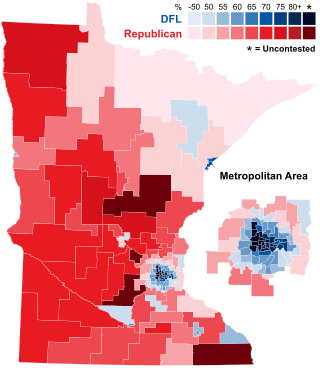
The 2022 Minnesota House of Representatives election was held in the U.S. state of Minnesota on November 8, 2022, to elect members to the House of Representatives of the 93rd Minnesota Legislature. A primary election was held in several districts on August 9, 2022. The election coincided with the election of the other chamber of the Legislature, the Senate.





















